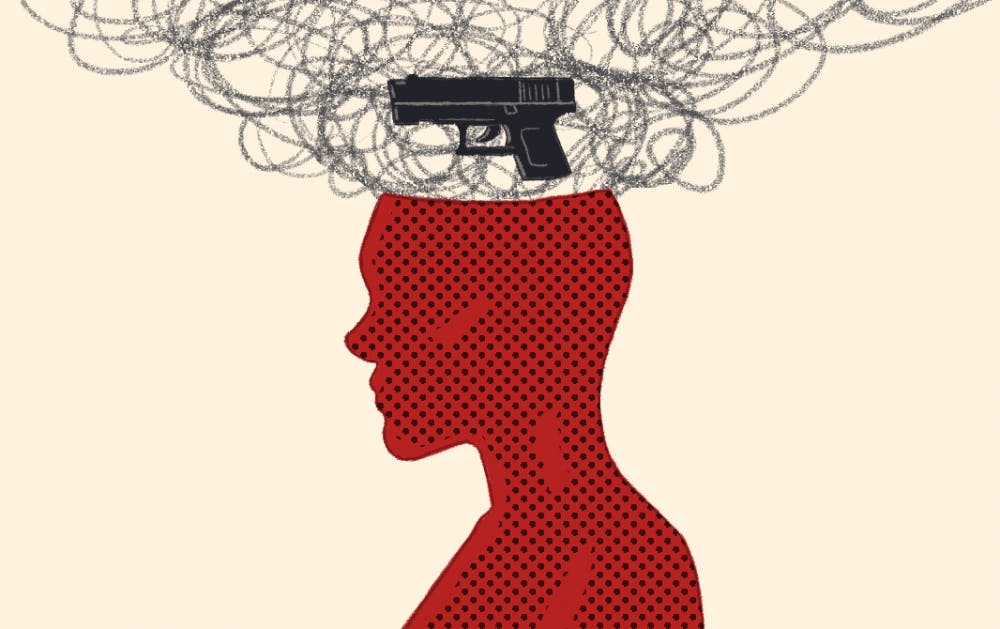An ASU researcher found security measures to protect against campus shootings can cause anxiety in students, but a need for protection might outweigh the psychological cost.
Sarah Lindstrom Johnson, assistant professor with the T. Denny Sanford School of Social and Family Dynamics, researches school, violence and security impacts on adolescents, and her recent study analyzed students’ perceptions of school security. The study found that some of the safety measures schools implement have negative emotional impacts on some students.
Lindstrom Johnson’s study focuses on the effects of the implementation of security features to protect a given space, also known as "target hardening," on students' perception of safety at school.
The study concluded that while students perceived outside cameras as protective, they perceived cameras inside the school more negatively.
Lindstrom Johnson said cameras were not the only features that negatively influence a student’s experience, especially if a student has experienced previous traumas in their personal life.
Lindstrom Johnson said school safety mechanisms can mirror negative experiences including police encounters or protective “lockdown situations" at home. Although the study's findings said most students associated the school security officers with safety, Lindstrom Johnson said the opposite is true for students with those memories.
“The existence of these security features actually relates to more fear among students, so a decreased sense of safety,” Lindstrom Johnson said.
Lindstrom Johnson said vestibules that create a barrier between campus and the outside world, as well as deliberately designed fences that create an open feeling instead of an industrial or confining one, provide effective security without negative emotional reactions.
In 2019, Everytown Research reported there have been at least 74 incidents of gunfire on school grounds in the U.S., and Mass Shooting Tracker reported 398 mass shootings across the country this year.
ASU campus safety measures
Olivia Armendariz, a junior sociology major, said she doesn’t feel threatened on campus, but certain situations do cause her some concern.
“If I see a lot of police activity, that’ll make me nervous because then I’m like ‘Oh they’re actually looking for something,’" Armendariz said. "It makes me think, ‘Is there a threat to the school? Did something already happen that’s making them be more active?’”
Although Armendariz mentioned police presence around campus, she said that school security is not visible on the campus itself.
“The closest thing I’ve seen is the people who tell you not to ride on bikes in the walk-only zone,” Armendariz said.
Brenda Carrasco, the ASU Police Department’s public information officer, said in an email statement that ASU holds free active shooter preparedness classes, encourages the use of the LiveSafe app that provides crime alerts and works with local law enforcement to be aware of crime trends. Carrasco also said that ASU has a clear bag policy for major events.
Lindstrom Johnson said that visible measures like clear bag policies create background anxiety.
“Nowadays, when you go to graduation or you go to a basketball game or football game, we have a clear bag policy and we have metal detectors. Every time you have to remember to have a clear bag or walk through a metal detector, you immediately think about why you have to do this," Lindstrom Johnson said. “That you are not safe, or potentially not safe, is kind of queued in your brain.”
Tierra Hopkins, a junior studying exercise and wellness, said the possibility of an on-campus shooting does cross her mind, but ASU’s crime alerts can provide reassurance.
"Just as I'm getting ready for the day, I definitely check the ASU crime alerts before I go to class, (it) definitely has happened a lot more this year than I would say my freshman year," Hopkins said.
Dealing with anxiety
Aaron Krasnow, director of ASU Counseling Services, said that anxiety about school shootings is not brought to the school’s counselors frequently.
“Counseling Services is designed to help students who feel like they need to talk to a professional person about whatever might be on their mind or that they might be struggling with emotionally or personally,” Krasnow said.
Krasnow said if students feel this anxiety, ASU Counseling Services is an option equipped to help.
Hanna Layton, a management intern with the Center for Mindfulness, Compassion and Resilience, said that practicing mindfulness techniques can result in physical effects that mitigate problems like school shooting anxiety.
“With mindfulness practices, there’s a little bit of room between the stimulus, and instead of reacting we have a choice to see what happens,” Layton said. "We have a choice, and then we respond rather than react."
Layton said the "STOP" technique calms physical anxiety in a stressful situation. STOP stands for: stop what you're doing, take a breath, observe and then proceed.
Layton said communication makes mindfulness efforts more successful.
"I think a lot of times just talking about anxiety around the situation can do a lot (to help), talking about potential risks or threats and the feelings that go along with them," Layton said.
Reach the reporter at gmlieber@asu.edu or follow @G_Mira_ on Twitter.
Like The State Press on Facebook and follow @statepress on Twitter.




